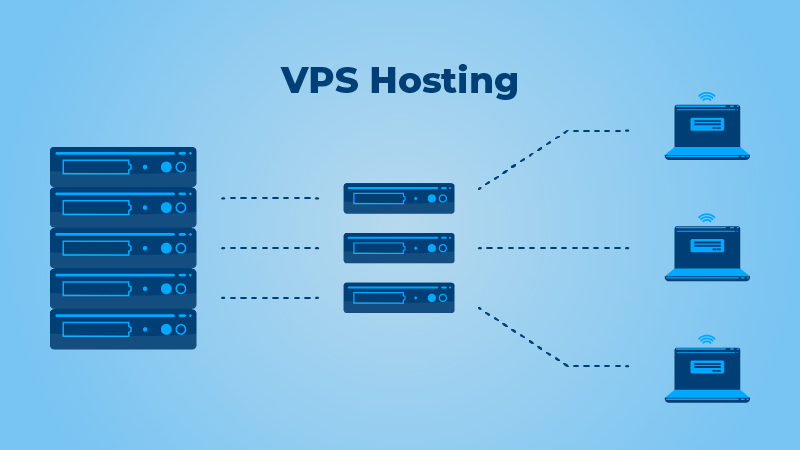Introduction
VPS hosting, short for Virtual Private Server hosting, is a popular choice for website owners seeking a more powerful and flexible hosting solution than shared hosting. In this blog post, we will delve into the world of VPS hosting, exploring its definition, advantages, and limitations. Additionally, we’ll highlight some reliable hosting providers that offer top-notch VPS services.
What is VPS Hosting?

VPS hosting operates on a virtualization technology that partitions a physical server into multiple virtual servers. Each virtual server operates independently with its resources, including CPU, RAM, and disk space. This isolation grants website owners greater control and customization options, resembling the capabilities of a dedicated server at a more affordable price point.
Advantages of VPS Hosting
Enhanced Performance:
Since VPS servers have dedicated resources, your website experiences consistent performance, even during traffic spikes. This is especially beneficial for high-traffic websites and resource-intensive applications.
Scalability:
VPS hosting allows you to scale your resources easily as your website grows. With a simple upgrade, you can add more CPU, RAM, and storage to meet your increasing demands.
Root Access:
VPS hosting provides root access or administrator-level control, enabling advanced users to configure server settings, install custom software, and manage security protocols as needed.
Improved Security:
With virtual server isolation, VPS hosting enhances security by reducing the risk of cross-contamination from other websites. Additionally, hosting providers often include advanced security measures for added protection.
Customization:
VPS hosting enables full customization of server settings, operating systems, and software installations, catering to specific website requirements and preferences.
Limitations of VPS Hosting
Technical Knowledge:
VPS hosting requires some technical expertise, especially if you opt for self-managed hosting. Users must be comfortable with server administration tasks or consider managed VPS plans for professional support.
Cost:
Compared to shared hosting, VPS hosting comes at a higher price due to dedicated resources and enhanced capabilities. However, the cost is still more affordable than dedicated hosting.
Server Management:
While VPS hosting offers more control, it also means that you are responsible for server management tasks like updates, security patches, and backups, depending on the chosen plan.
Popular VPS Hosting Providers
Bluehost
Bluehost is a renowned hosting provider known for its reliable VPS hosting plans. With excellent customer support and beginner-friendly features, Bluehost is a popular choice for VPS hosting services.
A2 Hosting
A2 Hosting offers blazing-fast VPS hosting with SSD storage, full root access, and a choice of Linux or Windows-based servers. Their Support provides reliable technical assistance.
InMotion Hosting
InMotion Hosting delivers high-performance VPS hosting with free server management, cPanel or WHM, and 24/7 customer support. They also offer a 90-day money-back guarantee.
Hostwinds
Hostwinds provides flexible and scalable VPS hosting solutions, allowing users to customize their servers. Their expert support team is available round-the-clock for assistance.
Conclusion
VPS hosting strikes a balance between affordability and enhanced performance, making it an attractive option for growing websites and businesses. With its isolated resources and customization options, VPS Hosting empowers website owners with greater control over their online presence. However, it’s essential to consider your technical proficiency and hosting needs when opting for VPS hosting.














